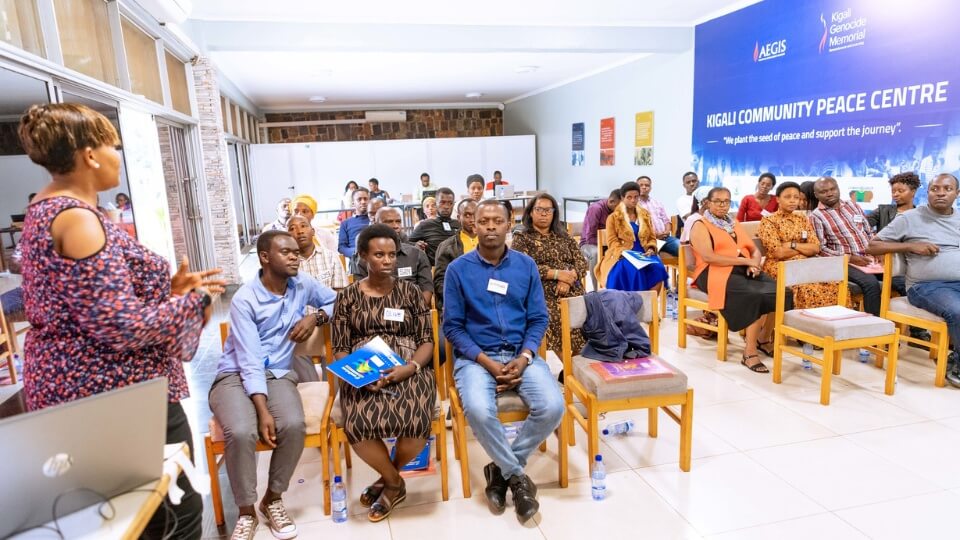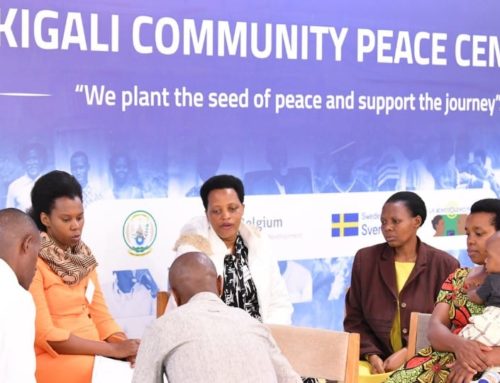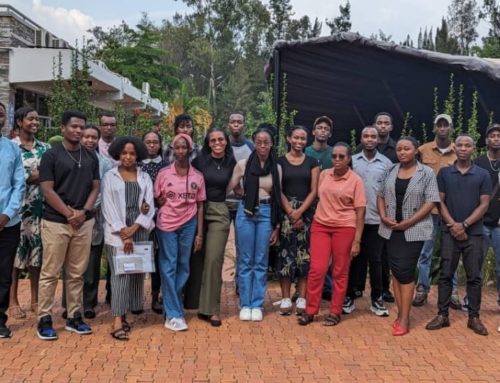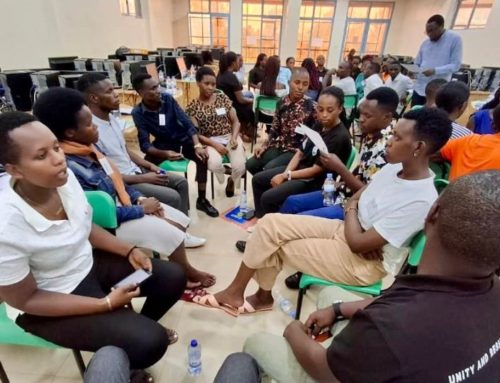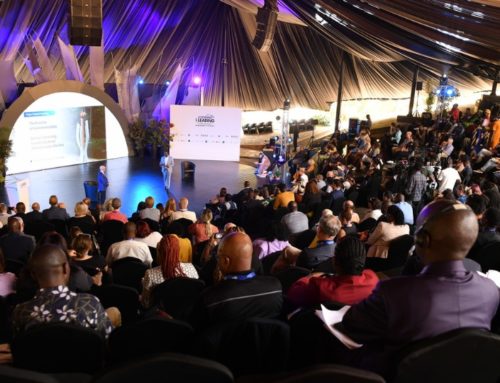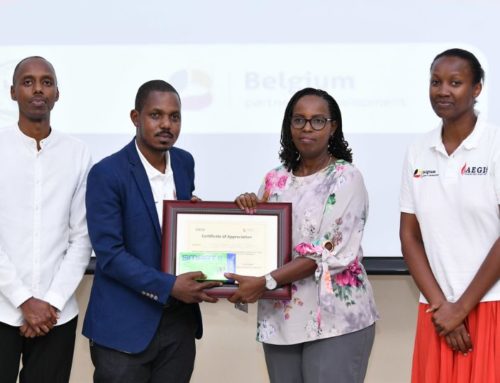In an inspiring Aegis Trust training workshop 11-13 September, 32 dedicated in-service teachers hailing from different schools in Kigali and its vicinity gathered in the Kigali Community Peace Centre at the Kigali Genocide Memorial. Their purpose: to embark on a transformative journey of Peace and Values Education.
The three-day workshop was designed to equip teachers and education leaders with the tools and skills needed to shape the minds and hearts of the next generation of peace builders and ambassadors. Training focused on imparting knowledge about Rwanda’s history, with special emphasis on the 1994 Genocide against the Tutsi, equipping these teachers with strategies to integrate Peace and Values Education into the curriculum.
Joseph Aimable Musoni, one of the teachers who attended the training, spoke on a common misconception attached to peace education: “Like many Rwandans, I thought peace education and conflict resolution was only concerned with unity and reconciliation following the 1994 Genocide against the Tutsi. However, attending this workshop has shown me that building sustainable peace commences right within my home, extends to my students, and radiates throughout my community.”
Teaching the history of such a complex and painful event as the 1994 Genocide against the Tutsi can be difficult, particularly when addressing students born in its aftermath. Judith Nyiratuza, a history teacher, candidly expressed her concerns, saying, “In my role as a secondary school history teacher, I admit that in the past, I feared teaching about the history of the Genocide and answering any questions my students had related to it. Their parents would tell them the truth, half-truths and even lies, so I feared sparking this conversation.” However, Judith’s perspective shifted: “After attending this training, I now know how I can discuss this crucial topic with my students and tell them the truth of what happened during the Genocide. However, I believe that it would be even more helpful if our students were able to have Kinyarwanda books about the Genocide in their curriculum.”
Beyond the historical aspect, the training also underscored the importance of nurturing critical thinking and empathy in learners, emphasizing the role of forgiveness in fostering peace and resolving conflicts. Teachers were introduced to the Ubumuntu Digital Platform, a valuable resource packed with teaching and learning materials designed to facilitate the integration of peace education into their classrooms.
Antoine Rusingizandekwe is head teacher at his school, and it is through the training that he realized the importance of connecting with the students he teaches, referring to them as an extension of his own family.
“This training has enlightened me on the importance of treating each child, especially my students, as my own. I now understand why we should befriend our students for them to feel comfortable in their learning environment,” he says. “As teachers, we shoulder the immense responsibility of building our country through the students we teach, who are the future of Rwanda. We must embrace this responsibility with unwavering dedication.”
Throughout the training, the teachers expressed the need for similar programmes aimed at educating other teachers about the history of Rwanda, especially teachers born after the Genocide. Furthermore, they expressed gratitude for the mental health awareness component of the training, which not only helped them overcome their own traumas but also helped them understand the potential psychological impact of their words and actions on their students.

